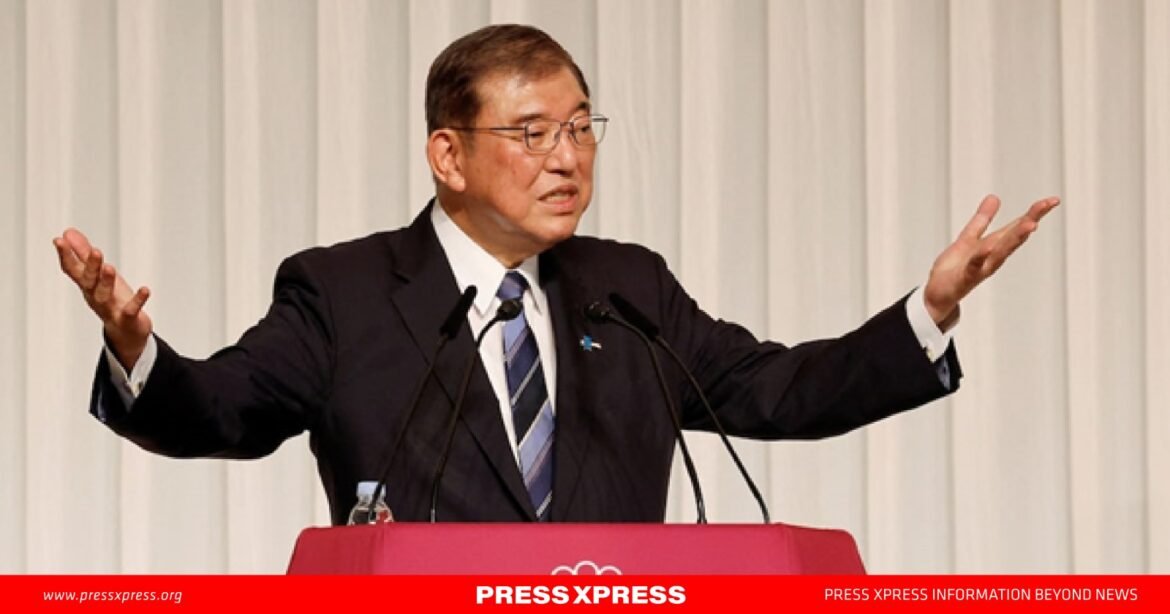Key Highlights:
- Ruling party picks Ishiba to replace PM Kishida
- Ex-defence minister succeeds in final leadership bid
- Ishiba vows party reform, aiming for greater transparency and openness.
- New PM faces security challenges amid tensions with China, Russia, and North Korea.
- Ishiba proposes Asian-style NATO, plans to review U.S. military bases in Japan.
Shigeru Ishiba will assume Japan’s premiership after a decisive victory in his fifth bid for leadership, setting his sights on revitalizing the economy, securing Japan against regional threats, and reforming his party. Ishiba, 67, a former defense minister, edged out Sanae Takaichi, a staunch nationalist, in a crowded contest with nine candidates to lead the Liberal Democratic Party (LDP), which dominates Japanese politics.
Inheriting a party and a country facing significant challenges, Ishiba is poised to address both domestic and international concerns with a promise to foster openness and fairness within the LDP. “We ought to be a party that lets members discuss the truth in a free and open manner,” he stated after his victory, signaling a move away from the opaque factionalism that has characterized the party’s past.
Ishiba’s narrow triumph follows the announcement by Fumio Kishida in August of his intention to resign amidst a series of political scandals that saw the LDP’s popularity plummet. These scandals, involving unrecorded political donations, prompted significant internal reforms within the party, contributing to a more transparent and competitive leadership race.
‘Make country safe and secure’
Internationally, Ishiba faces a volatile security environment. He pointed to recent territorial incursions by Russia and China, and continuous missile tests by North Korea, as justifications for a robust national defense strategy. Notably, Ishiba has proposed the establishment of an Asian-style NATO and plans to scrutinize the United States’ use of its military bases in Japan more closely.
On the economic front, Ishiba is committed to steering Japan away from deflation and revitalizing consumer spending as the nation grapples with a weakened yen and decades of monetary easing. At home, he also aims to address social issues such as rural depopulation, gender equality, and the challenges faced by Japanese women, who, he notes, are burdened with disproportionate responsibilities at work and home.
Ishiba’s foreign policy stance includes supporting Taiwan’s democracy, a sensitive point given Japan’s lack of formal diplomatic ties with Taiwan, which China claims as its territory. His leadership is anticipated to deepen Japan-Taiwan relations, as expressed by Taiwan President William Lai Ching-te, who values the longstanding friendship between their ruling parties.
As the new head of the LDP, Ishiba has the potential to serve up to nine years across three terms. His leadership comes at a critical time when Japan must navigate rising living costs, energy security concerns, and a complex international landscape marked by an assertive China and ongoing threats from North Korea.
His previous opposition to policies such as increased nuclear energy use, a contentious issue following the Fukushima disaster, and the LDP’s stance on married couples’ surname laws, marks him as a maverick within his party. This inclination to challenge party orthodoxy might appeal to a public weary of traditional politics.
With a general election on the horizon, Ishiba’s ability to connect with the electorate and manage a divided party will be crucial. His early call for a general election suggests an eagerness to consolidate his leadership and mandate. Analysts believe his popularity and candid demeanor could galvanize support both within the LDP and across the nation.
As Ishiba prepares to formally take office following a special parliamentary session on Tuesday, both allies and rivals watch keenly. His leadership style, policy priorities, and handling of both internal party dynamics and external geopolitical challenges will define his tenure and shape Japan’s path forward on the global stage.


